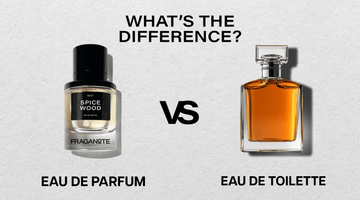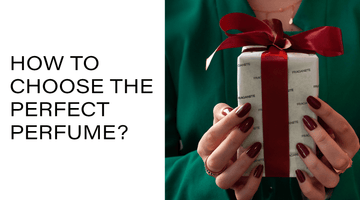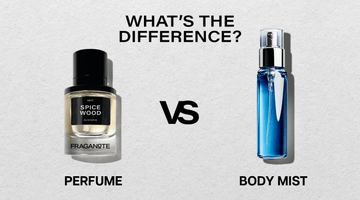
Choosing the ideal fragrance can feel like navigating an infinite sea of alternatives, with terminologies like Eau De Parfum (EDP) and Eau De Toilette (EDT) frequently adding to the complexity. While both are popular perfume choices, their distinctions extend beyond their names. Each provides a distinct fragrance experience adapted to individual preferences, circumstances, and seasons. Understanding the differences between EDP and EDT is critical for selecting the fragrance that best suits your personality and lifestyle.
We will learn about the fundamental differences between Eau De Parfum vs. Eau De Toilette, including their composition, fragrance strength, and recommended use. Whether you are a fragrance expert or a newbie trying to make an informed decision, it's important to learn the fundamentals and select the best fragrance for any occasion.
What is Eau De Parfum (EDP)?
Eau de Parfum (EDP) is a fragrance type known for its high concentration of aromatic oils, which provide a richer and longer-lasting perfume than other formulations. This increased concentration increases its effectiveness and assures that the fragrance lasts throughout the day or night.
EDP is known for its depth and complexity, mixing nicely with the wearer's skin chemistry to create a unique and customised perfume. Perfect for special occasions or nighttime wear, it is ideal for anyone wishing to leave a lasting impression with a sumptuous and strong aroma.
What is Eau De Toilette (EDT)?
Eau de Toilette (EDT) is a fragrance that contains fewer aromatic oils than Eau de Parfum. This formulation imparts a light, refreshing aroma, making it appropriate for everyday use and warmer regions. While EDT does not last as long on the skin as EDP, it has a pleasant aroma that suits personal style and lifts the mood. Its light and airy contour makes it a versatile option, particularly for those new to scents or seeking something discreet yet impactful.
What is the Difference Between Eau De Parfum and Eau De Toilette?
While both EDP and EDT belong to the same fragrance family, their differences lie in their formulation, intensity, and usage.
1) The Basics
EDP and EDT refer to the concentration of aroma oils in fragrances. Eau de Parfum (EDP) often contains a higher concentration of oils, ranging from 15% to 20%, resulting in increased longevity and intensity. In contrast, Eau de Toilette (EDT) has a lower concentration, typically between 5% and 15%, resulting in a more delicate and pleasant aroma. The difference in concentration directly affects how long the fragrance lasts and how visible it is.
2) Scent Strength
Eau de Parfum is distinguished by its strength and staying power due to the higher concentration of aroma oils. This increases the intensity and duration of the perfume, which evolves beautifully over hours, revealing its layers of notes. Eau de Toilette has a lighter, fresher perfume appropriate for everyday use or when a more subtle fragrance is desired.
3) Fragrance Development
One of the most exciting parts of perfumery is how fragrances change over time. Eau de Parfum (EDP) and Eau de Toilette (EDT) each provide a distinct fragrance experience. EDP, due to its higher concentration, unfolds more slowly and elaborately, allowing different aroma notes to emerge gradually. On the other hand, EDT has a lighter content, resulting in a faster and more direct evolution, making it perfect for individuals who prefer a fragrance that leaves an immediate impression.
4) Experimentation and Layering
One of the benefits of perfume is the ability to experiment and create unique fragrance combinations. Eau de Parfum (EDP) and Eau de Toilette (EDT) can be worn alone or combined to create a personalized fragrance. For example, you could apply a base layer of EDP for a long-lasting perfume, followed by a spritz of EDT for a lighter, fresher finish. Allow yourself to be creative and experiment with fresh scents.
Which One to Choose?
In the realm of scents, the choice between Eau De Parfum and Eau De Toilette is ultimately based on personal preference, lifestyle, and the occasion. Eau De Parfum, with its powerful and long-lasting perfume, is ideal for people who want a bold, refined fragrance that leaves an impression. Understanding the fundamental distinctions between EDP and EDT, from fragrance oil content to scent development, will allow you to choose the best fragrance for your needs confidently. EDP and EDT let you express your style and individuality. Experiment with both and discover the beautiful world of perfumes, where each aroma tells a different tale.
Check out our luxurious perfumes at Fraganote for a fragrance that lasts longer and tells your story.
Frequently Asked Questions
1) Can Eau De Parfum and Eau De Toilette be used together?
Yes, they can be layered for a unique scent. Start with the lighter EDT as a base and add EDP for intensity.
2) Which is more cost-effective: EDP or EDT?
While EDP is usually more expensive due to its higher oil concentration, its long-lasting nature can make it more economical in the long run.
3) Is one better than the other?
The choice depends on personal preference, occasion, and how you want the fragrance to perform.
4) How should I store my EDP or EDT to maintain its quality?
Store your fragrance in a cool, dark place away from direct sunlight and extreme temperatures to preserve its scent profile.




